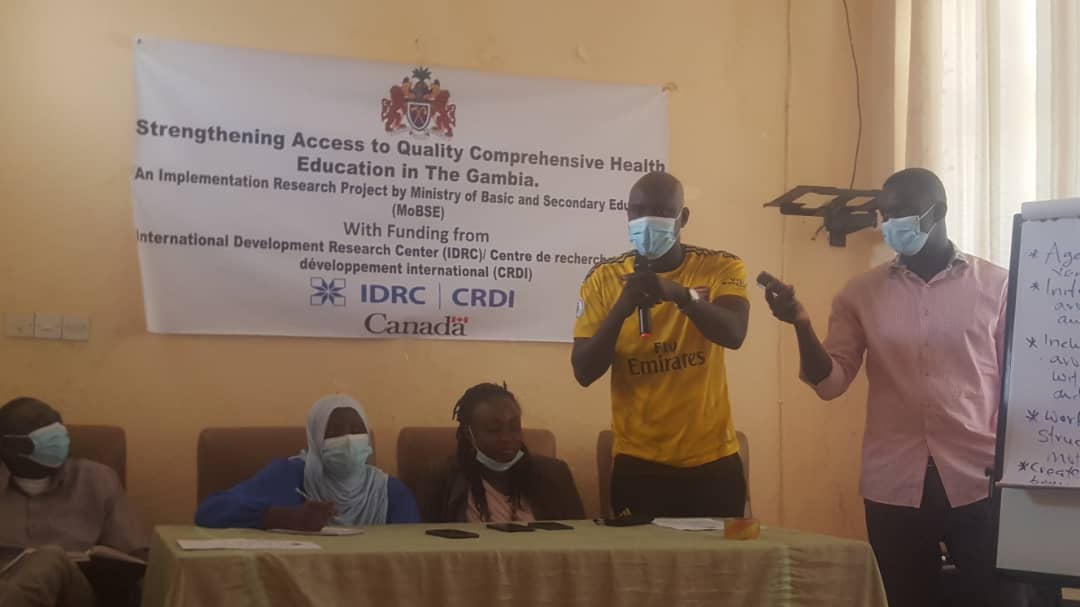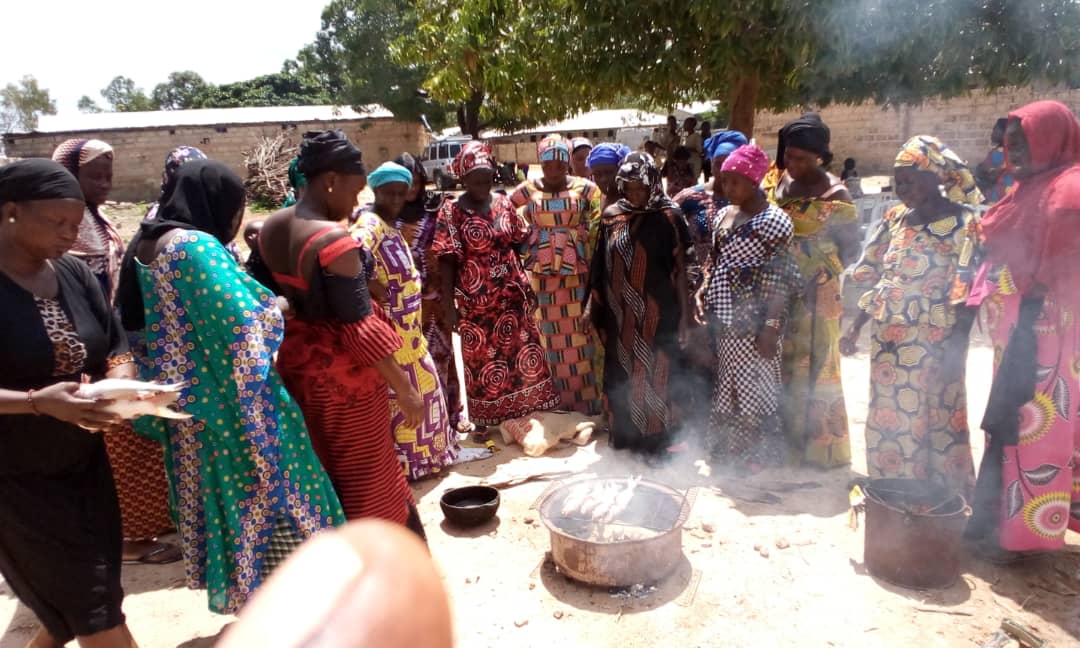By Yunus S Saliu
The Deputy Mayor of Banjul City Council has applauded the principal investigator of a research project titled – Strengthening Access to Quality Comprehensive Health Education in The Gambia.
Strengthening Access to Quality Comprehensive Health Education in The Gambia is an implementation research project done by Ministry of Basic and Secondary Education. It was funded by International Development Research Center (IDRC), Canada.
Deputy Mayor Omar Touray, addressing the gathering during a two-day sensitization campaign on comprehensive health education (CHE) in Banjul thanked Phebian Ina Grant-Sagnia, principal investigator of the project for Strengthening Access to Quality Comprehensive Health Education for in-and-out of School Adolescents in Region I and team for the great initiative and for including the people of Banjul in the project.
The Deputy Mayor used the advantage of the sensitization to share some insightful experience with the participants. He as well highlighted on some challenges facing the youth in Banjul which are leading to teenage pregnancies, STIs among other noticeable issues.
He went further to urge the Gambia government to take steps to control some activities that young people engage themselves in the society giving example of ‘pasa pasa dance’ “such activities expose young people to gender based violence (GBV).”
However, “government should ban such activities from the communities this way we will be able to protect adolescents especially the girl child,” he advised.
Notwithstanding, he advised young people to have discipline towards their elders and among themselves, also, to concentrate on their education.
Phebian Ina Grant-Sagnia, principal investigator of the project who is also a Principal Health Researcher Ministry of Health said the study was in four different phases. Phase 1 include a simple random survey with in-school adolescents aged 10-19 years stratified by age and sex from selected public and private schools in Western Region 1, Kanifing Municipality Council with focus group discussions with out of school adolescents. And key informant interviews of school principals and teachers, curriculum developers and program implementers, staffs of youth organizations and NGOs, and also “religious and traditional leaders were used to collect quantitative and qualitative data,” she noted.
In phase 2, she said is the quantitative and qualitative data collected analysed and used to support the design and implementation of school and community-based programs, while phase 3 is an assessment into the effect of the implementation of the school and community-based programs.
And the fourth phase, she said the lessons learned from the implementation of the school and community-based programs will be used to identify the relevant factors to consider in ensuring effective coordination of comprehensive health education across various partners and in sustaining and scaling up to of the schools and community-based programs to other Gambian regions.
Dr Mat Lowe made a full presentation on the Comprehensive Health Education (CHE) which was followed by questions and answers.




